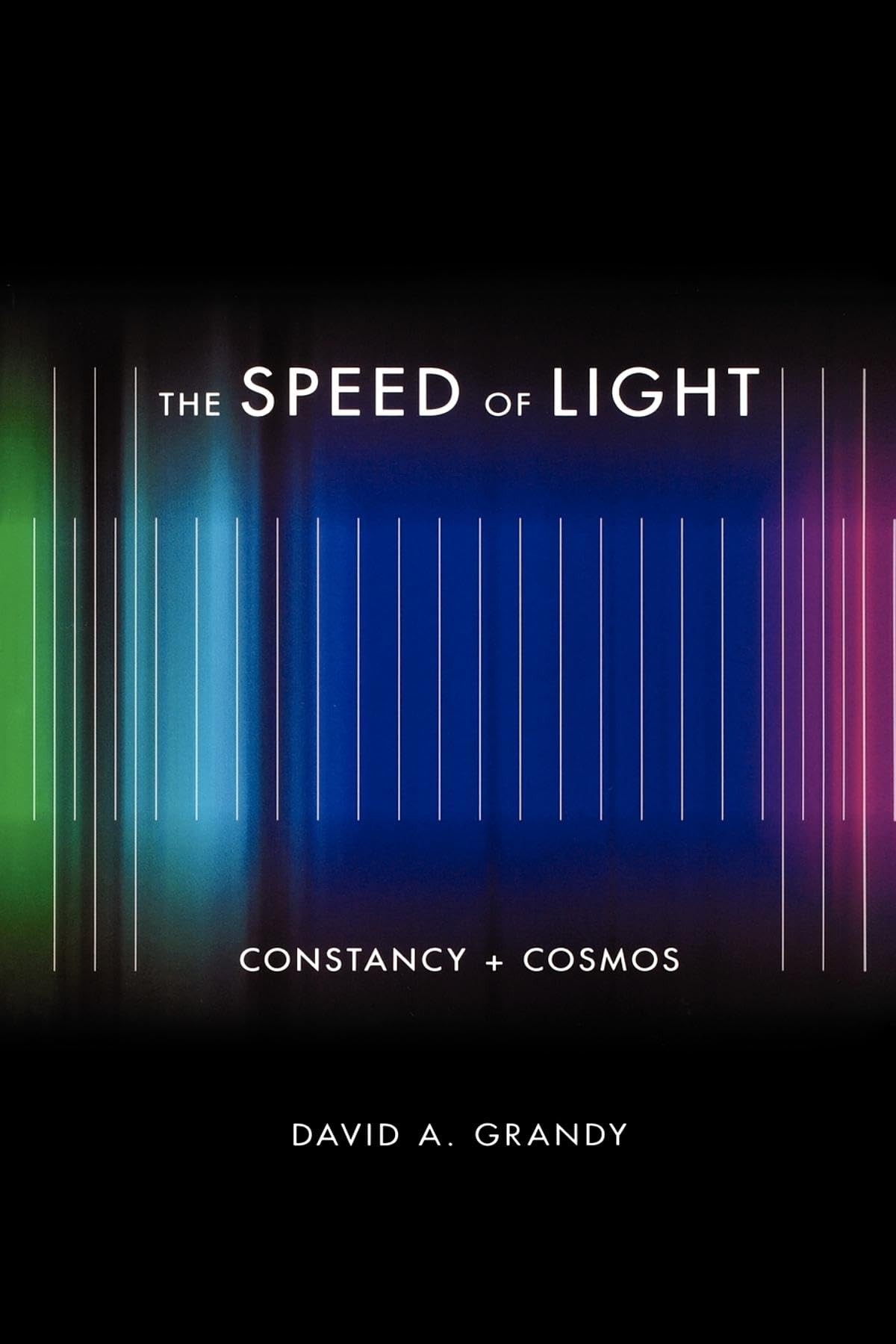Customer Services
Customer Support

Desert Online General Trading LLC
Warehouse # 7, 4th Street, Umm Ramool, Dubai, 30183, Dubai
Copyright © 2025 Desertcart Holdings Limited


The Speed of Light: Constancy and Cosmos
S**K
Light, philosophy & deep physics
I've been thinking about light. I want to write about light and I can't help notice that I am surrounded by it. It fuses within me and although it is scattered around me, I cannot see it until it strikes my eye here in the center of my universe--I am an observer, a participant with light that creates my visual field and informs my consciousness. I experience light as it combines with my mind, integrating my world at a quantum level and then bubbling up into something that can be acted upon at macro scales. Light. What is it? I owe these contemplations to this book by David Grandy, a philosophy professor at Brigham Young University where he teaches classes in the philosophy of science. Grandy begins by showing how, unlike the way we typically take the world such that light, in some sense, is moving through a fixed space and time, it is light that grounds the universe. It is the one constant, the framing structure to which space and time conform and to which they shape their warp and weave.In this book, Grandy carefully unpacks the philosophical implications of the constancy of the speed of light by examining Einstein's theory of relativity (the clearest explanation I've seen). But he does more than just catalogue light's strangeness, he explores the stunning implications of that weirdness. He looks at the physics of light, its effect on space-time; he explores the uniqueness of light and the perplexing way it interacts with observers by affecting and being affected by them; he imagines how time passes for light, or more accurately put, how it is not affected by time's passage; Grandy looks at ambient light in ways I've never thought of and explores the strange connectedness and disconnectedness of light as it moves beyond being both particle and wave; and lays out the case that light is fundamental in ways that we have just begun to discover. "Let there be light!" prior to all particular things (like suns), really is the right description of how our universe has unfolded.However, for me the best parts of the book are the latter chapters where he explores the philosophies of Merleau-Ponty and Heidegger on the relationship between consciousness and light. These chapters, despite drawing from rather sophisticated ideas from Continental philosophy, are accessible and well explained. Consciousness and light seem to be part of a unified reality that for readers will seem very familiar.I typically read three or four books at the same time, but this one pushed everything to the side. I literally could not put it down. Grandy writes like an angel. My advice is not to start this book on a weekend in which you have things to do--because you will not get them done. Talk someone into putting this into your stocking.
C**O
Complete darkness
Too much obscurity for a book that ought to be about light. A pastiche of other author's thoughts about light. It almost seen like a cut a random cut and paste. If you expected to understand light in relativity you won't be able to, if you expected to understand light from a more philosophical view you won't either. Unable to transmit any understanding. This book about light doen't transfer any light
S**E
Should be more attention put into this subject
Quite possibly the best book I've ever bought on Amazon
P**U
Light on physics, heavy on philosophy
This book does a very good job of exploring the following syllogism: Major premise: Relativity is weird. Minor premise: Relativity is true. Conclusion: Other weird ideas must be true too.For people looking for the philosophical implications of the constancy of the speed of light, and an understanding of how those philosophical implications might affect their daily life: this is probably a really good book. For people looking for the physics of light, and an understanding of how the constancy of the speed of light has changed the way we understand and think about the universe: not so much. There are plenty of science-y words inside, but the ideas start out having little to do with science and they veer completely clear of it before the first few chapters are done. But this book does not go off the rails: it was never on the rails. It might have been *near* the rails at the beginning, but by the end it is as far from the rails, conceptually speaking, as the distant stars. This appears to have been the writer's intent, so kudos on that.When Isaac Newton presented his ideas on light and gravity, he stated he would not “feign hypotheses”: he would present the science as it was, without speculating on what the science meant philosophically, despite a strong desire on his part to do just that and reconcile the science with his beliefs. Ironically enough, he is quoted saying that in this very book; the idea is presented, and then dismissed as then the author dives into chapter after chapter of 'feigning hypotheses' about what the science means in terms of the author's "quest to grasp modern physics and its philosophical ramifications".Which, if you're into science-flavored philosophy, is probably a pretty good read. But if you prefer philosophies that contain actual science, you might want to look elsewhere.
Trustpilot
1 month ago
2 weeks ago